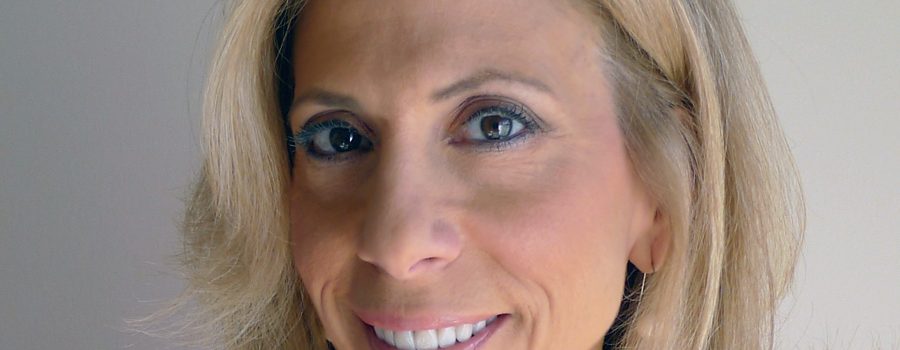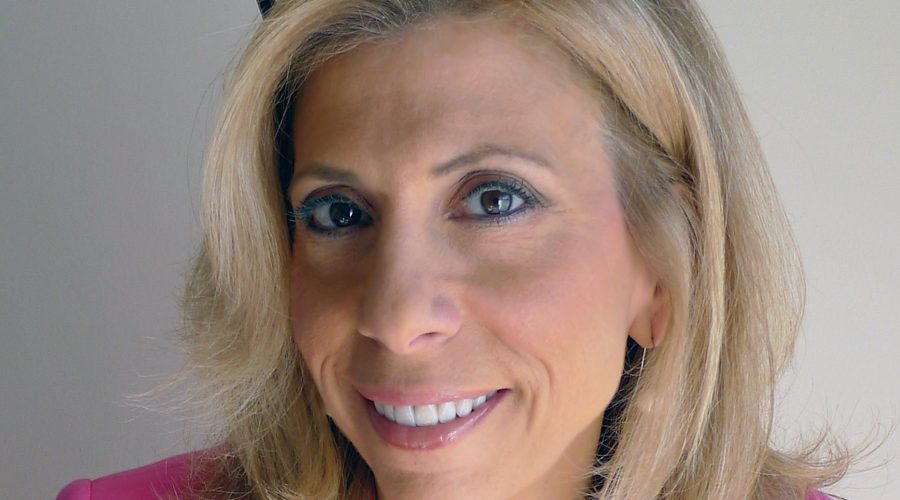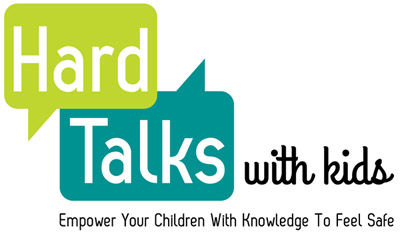

Preparing your Child for Sleepovers from a Sexually Inappropriate Perspective – by Pattie Fitzgerald
hard talks October 14, 2016 admin 1

Subscribe to Hard Talks With Kids
Today Pattie Fitzgerald, a leader in Child Predator Safety Awareness and I had a discussion about how to talk to your young elementary aged child to prepare them for sleepovers – from the perspective of preventing sexual inappropriateness.
Estée: I have a 5 year old daughter and I believe she’s on the young side for a sleepover, but I want to get your opinion on what you think the appropriate age range is for children to begin having sleepovers.
Pattie: Well I think you’re right about that, I think 5 is a little bit young. My feeling is that there’s no one right age – but kids have to be taught what is okay and not okay. Or what I call ‘thumbs up’ or ‘thumbs down’ at a sleep over before we allow them that sort of freedom and independence. So at 5 years old developmentally they’re not really necessarily going to understand how to defend a boundary if somebody crosses it. So I do think 5 is a little young – but I do think it’s a great time to start teaching kids about appropriate touches and that we’re the boss of our bodies and we’re the boss of our private parts. So when we’re at things like play dates and any kind of social events and school, they have the right to say that’s my private part don’t touch that. And I think once a child really gets that and is able to execute that line, or that piece of information then we can start to have a conversation about sleepovers and when they’re okay and when they’re not okay. So, I usually think that around 8 years old kids are starting to understand what that means, that’s not a bad time to entertain the thought of sleepovers, but there’s a whole lot more.
The Environment
Pattie: I don’t think it’s necessarily the sleepover that’s a bad thing, I think it’s the environment. And I think what happens is parents don’t necessarily do all the due diligence ahead of time. There are some sleepovers that are going to be just fine and it’s really wonderful to wake up and see how your best friend’s mom makes pancakes on Saturday mornings. But I think parents have to have spent time in that house. You have to know who else is going to be there. On my website I have a whole check list of questions you should ask as a parent, for example who’s going to be supervising: is it mom, is it dad, is it both parents, is it a babysitter, is it an older sister and her boyfriend because the parents are going out? It really is going to vary in terms of who is supervising. One of the other questions you want to ask is who else is in that environment. And this doesn’t sound politically correct -but I’m not fan of sleepovers where there are older teenage brothers and my kid is 7 or 8 or 9 years old. Sometimes it’s the same with a teenage girl but the risk isn’t quite as bad. Sometimes a teenage or even a preteen kid is just curious and perhaps they’re just experimenting with their younger sibling. And it’s easy for play to get out of hand at a sleepover.
Estée: Sure hormonally they’re at such a different point in their life, I completely hear you. It may sound politically incorrect but hormonally they are experiencing a much different stage of life.
Pattie: Exactly. They’re not trying to be molesters, but it’s easy to experiment and practice on a younger kid who may not be able to say don’t do that. So when my daughter was very young I was very cautions. I did allow her to have sleepovers but there were no older brothers in the house and if there was an older sister in the house I had to know what that child was like as well and make sure she wasn’t having a lot of her friends sleeping over as well. So that’s another question, find out who else is going to be there in terms of other kids.
Another important question -is my child going to have to bathe there – and the answer should be NO. I think a parent needs to specifically say that when bringing their child to a sleepover. My child doesn’t need to take a bath here, we bathed her before. And be sure your child knows that as well. For example with my child I used to say ‘Marissa you don’t have to take a bath there, so if somebody changes their mind and says you do, all you have to say is no I only take baths at home.’
And that’s another important thing, can your child actually verbalize that? Do they have the empowerment to say no I only take baths at home? If she can’t do that yet or she’s a little bit skittish, I’m going to wait on that sleepover. Because I just think she’s not ready to defend that boundary if need be.
Experimentation vs. Peer Molestation
Estée: I don’t know the difference between experimentation vs peer molestation, is it the same thing? Is there a difference?
Pattie: There’s actually a big difference. Developmentally it’s very normal for peers, children of the same age, to be curious about body parts and what they look like. That’s typically between 3, 4, 5 and 6 years old. And when it’s developmentally normal is when it’s two children of the same age and it’s not sexualized in any way. For example if they’re playing doctor and it’s something like show me yours and I’ll show you mine. That’s developmentally appropriate and normal. And it’s also a teaching moment for parents to says hey, we keep our privates private. When it’s not normal is when it is sexualized in some nature. So if a child reports that a peer tried to put their mouth on their genitalia or insert something inside them or there was an element of cohesion or power – that could indicate molestation or inappropriate touching as opposed to developmental play.
The other thing you have to be careful of is an older child with a younger child. DSM (Diagnostic and Statistical Manual of Mental Disorders) actually describes it as the difference in age of 3 years. So a child who is 3 years older and using power, control or manipulation would be inappropriate, rather than developmentally normal. For example if you have a 9 year old with a 6 year old and the 9 year old is trying to teach the 6 year old something inappropriate that’s not developmentally normal. And usually by the age of 7 kids are done with that experimentation. They’ve already been taught and even instinctively know private parts are private. Its almost like they organically grow out of that. So when I see a 9 year old or an 8 year old who is really experimenting in a lot of private parts play or curiosity with other kids – that usually means there’s something else happening here.
The Discussion vs. Projection of your Fears
Estée: So it seem like what I’m hearing is there’s a lot of homework parents need to do to make sure the environment their child is going to spend the night in is safe and appropriate. One of my concerns with all this information and preparation is that I would be projecting or leading my child in a fearful way instead of having a wonderful experience. I grew up having great, wonderful sleepovers that were very valuable to me. But I don’t want to lead my daughter or project my own personal fears. Can you elaborate on how I can have this conversation with my child?
Pattie: You’re right on the money there – it’s not necessarily the sleepover and sometimes a sleepover can be a wonderful right of passage for a child. And I don’t ever want a parent to be so overprotective that their kid doesn’t experience childhood. So, how do you teach your kids that at a sleepover they don’t have to be paranoid? I think a lot of it comes in terms of manner and tone. Kids will pick up the tone of how important it is or how horrible it is from the tone of their parents. The tone and manner should be bright and playful and full of information in an empowering way. For example I would say to my own daughter “Marissa, you’re going to a sleepover at your best friend’s house how fun! Let’s go over our sleep over ‘thumbs up’ stuff.” a) You don’t have to take a bath until you come home, yay! b) you can say I’m the boss of my to anybody. So if anyone is trying to play with your private parts you know what to say. c) if you want to call me or come home, just give me a call and I’ll pick you up, no problem.
A lot of the information has to feel like a safely net for a kid rather than ‘hey look you’re going on a sleep over and it could go really good or it could be a disaster so here’s what you need to know,’ We want to avoid that.
Safety Codes and Words for Pickup
Estée: Okay, so a lot depends on the tone and how we present it. Do you believe in safety words or code words or anything where my child can call me and say the word that means I need to pick her up so she doesn’t have to say what it is she’s upset about?
Pattie: Yes that’s a huge thing – safety codes and safety words. Sometimes a kid simply needs to stay safe and they don’t want to say anything in front of everybody else that they want to come home, even if they’re just homesick. Especially if something is really going wrong. So with my daughter we set up a safety question. But you could use a safety word or statement or question. For example my thing with Marissa was if you want to get out of something, and you need an exit strategy, you call me up and and say ‘mom, how’s grandma?’ I knew that was my que to go get her. I’d pick her up and say to the parents, her grandma isn’t well I came to pick her up and we need to take care of some family stuff.
Kids have all kinds of passwords, ‘mom I forgot to feed the dog,’ ‘mom don’t forget to feed my fish’, stuff like that. Whatever works and whatever resonates with your kid. And it’s really fun to set that up with your child.
I also think that kids who are very young are not necessarily developmentally able to carry out the whole code thing. You have to practice it and don’t just assume since you told your kid the pass codes or questions that they comprehend it. You have to actually role mode it and play it out at home in a fun playful way. And that’s you’re safety net as well as theirs.
Estée: I find this piece of what we’re talking about right now very helpful for me in determining when my child is really old enough for a sleep over – when she can actually comprehend how to do this…and that’s not going to be at 5 years old.
Pattie: For my own daughter we did sleepovers at only a couple of houses where I had done my due diligence and personal inventory and was happy that the environment was a safe environment. The parents were on the same page with me in terms of safety and phone calls and supervision and what they allowed in terms of computers not being allowed in the room and what kids had access to. There’s a lot of conversation that needs to happen between parents so you can determine, ‘are these parents like me or not?’ I’ve have a lot of parents who are wonderful but far more loose in terms of what goes on in their house. So a sleepover may be appropriate at one house but not another. So, a lot has to depend on what we’ve done ahead of time.
One of the things I also caution parents on, again not necessarily politically correct, but single parents can be more vulnerable to ‘tricky people’ in their lives – whether it’s a single mom or a single dad. I have to be very mindful if they’re asking my child to have a sleep over there. Simply because, if mom has a new boyfriend, is he going to be there? If it’s a dad are all his friends going to be there playing cards while the kids have a sleep over. There are things I need to know ahead of time. And sometimes a single parent can just be a magnet for a ‘tricky person’ because they’re one parent short – one pair of eyes short. Maybe they aren’t able to supervise as closely. And of course this isn’t always true. There are PLENTY of single parents who have very safe environments for their kids. So again, it’s personal inventory – did you do your homework first.
Stranger Danger vs. Tricky People
Estée: Can you quickly describe and I know you go into detail on your site, but can you describe your philosophy behind ‘tricky people?’
Pattie: I like to talk about tricky people and teach kids and parents that concept instead of stranger danger for a couple of reasons.
Most harm or sexual abuse comes to kids by someone they know. Uncle Creepy, Cousin Yucky, your next door neighbor, soccer coach or whatever. It’s usually not the stranger in the trench coat behind the bush at the park. And so when we start thinking about who’s breaking safety rules or who’s looking for too much access or private time or blurring boundaries with me or my child in another way – that’s how I can figure out if someone is a ‘thumbs up’ or a ‘thumbs down’ person with my kid. Stranger danger basically teaches kids to be afraid of people they don’t know. And kids see us talking to people we don’t know every day – so the message is cloudy. They don’t really understand stranger danger. Statistically we’re not really teaching kids to be mindful of an inappropriate touch from someone they know. Or even in cases when the stranger is the tricky person, a stranger does not come across as mean, scary or fearful and that’s what kids think a stranger is. Unfortunately a stranger is going to be charming and friendly and outgoing with an alluring trick to gain that child’s interest. So once again stranger danger doesn’t work. And so the idea behind tricky people is not what somebody looks like but how they act. Tricky people put off red flag warning signs and when you know what to look for you can spot them pretty quickly. It’s not that difficult.
- My first rule of thumb for parents is pay attention to who’s paying attention to your kid. And if there’s somebody who is always looking for access and alone time, ask yourself if this makes sense and is the right person for that. For example if grandma wants to spend a Saturday with my daughter for her birthday – just grandma time – that makes sense. But if a soccer coach says she’s my favorite kid and I’d love to take her out to a special soccer match or to a movie for her birthday – that does not make sense. So I’m always asking – who’s asking what and does it make sense. And don’t be afraid to say ‘no I’m not comfortable with that. Or I’m just going to have to say no, I hope you understand.’
- In terms of tricky people in our families I’m always mindful that play date doors stay open. And when there’s big family gatherings be mindful – where are the kids and where are the grown ups. And if there’s always one grown up who wants to be where the children are, supervise that. (There’s a whole lot more red flags on Pattie’s website.)
- Tricky people have said over and over, if they want to do something to a kid two elements must be present: access and privacy.
Estée: It’s just not worth the risks here. We have to watch the red flags and our intuition. And not be afraid to say no.
Pattie: The intuition is perfect. I teach kids to listen to their ‘uh ooh’ feelings. If you get that feeling, listen to it. Don’t talk yourself out of it. The minute you try to minimize someone’s inappropriate conduct that’s a sure sign somethings not quite right.
Pattie Fitzgerald is the founder of SafelyEverAfter.com, Inc. and is recognized as a leading expert in the field of sexual abuse prevention education and child abduction prevention. She is certified as a Child Safety Educator & Child Visitation Monitor, and has worked tirelessly as children’s advocate for over fifteen years. As a former teacher, Pattie blends her expertise as an educator and, more importantly as a MOM, to teach parents and kids her effective, non-fearful “Safe-Smarts” curriculum, which is now used at schools throughout the United States, Canada, and Great Britain.
Admired for her positive approach, Pattie is also the author of two highly acclaimed children’s books: ‘No Trespassing, This is my Body’ and Super Duper Safety School – Safety Rules for Kids & Grown Ups. She has been been featured on Dateline, NBC, Good Morning America, CNN, The Today Show, MSNBC, as well as countless national and local news programs.
Receive updates from Hard Talks With Kids

Roberta
October 24, 2016 #1 AuthorThis is the perfect way to break down this inaofmrtion.